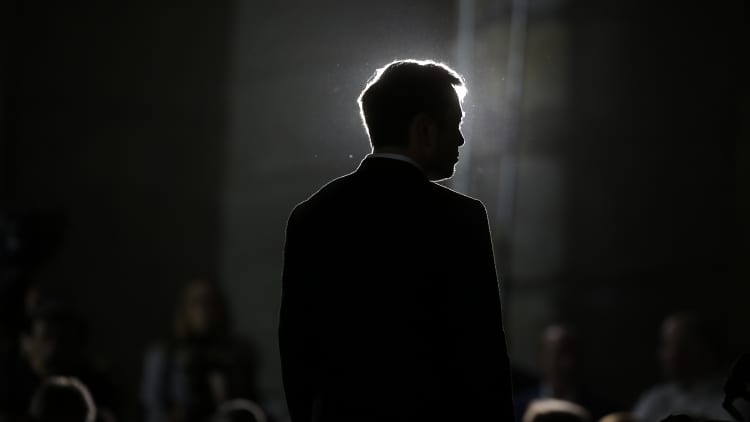David Rolfe, a longtime Berkshire Hathaway shareholder and chief investment officer at Wedgewood Partners, is fed up with Warren Buffett.
Rolfe told clients in a letter he sold the firm's stake in Berkshire after decades of being shareholders, noting his frustration with the conglomerate's massive cash hoard, lackluster investments and what he thinks are missed investment opportunities by the Oracle of Omaha and his team during the current bull market.
Berkshire Hathaway shares have lagged the S&P 500 over the current bull run, which started March 2009. In that time, Berkshire's Class A stock is up 323% while the broad index has gained 334%.
"Thumb-sucking has not cut the Heinz mustard during the Great Bull Market," Rolfe wrote in the third-quarter letter to clients. "The Great Bull could have been one helluva of an astounding career denouement for Messrs. Buffett and [Vice Chairman Charlie] Munger."
Not that Buffett will miss Rolfe much, the RiverPark/Wedgewood Fund owned 48,000 shares of the Berkshire B class of stock, amounting to about $10 million. And Rolfe's performance throughout the bull market has not been the best, either. His fund's annualized returns, net of fees, are 13.6% over the past 10 years through the second quarter, according to a factsheet found in the Wedgewood Partners website. In that time, the S&P 500 has posted an annualized return of 14.7%.
Berkshire's cash pile swelled up to more than $120 billion by the end of the second quarter of 2019, a record for the company. In his annual letter to shareholders, Buffet said he wanted to make an "elephant-sized acquisition" but noted prices were "sky-high." Rolfe thinks so much cash is a "considerable impediment of growth" for the company.

Rolfe also grew frustrated with some of Berkshire's investments during the current bull market. He highlighted IBM and Kraft Heinz, among others.
Buffett revealed his $10.7 billion IBM stake in the fourth quarter of 2011. But by early 2018, he had sold the entire stake. In that time, IBM shares dropped more than 20%.
Kraft Heinz is another investment that hasn't panned out for Berkshire, especially since 2018. The stock has lost about two-thirds of its value in that time.
These moves "do not inspire confidence that Buffett & Co. are still at the top of their game," Rolfe said.
Buffett and Munger are 89 years old and 95 years old, respectively, and questions over who will succeed them have been percolating for years now. At the company's annual shareholder meeting, Buffett said longtime executives Greg Abel and Ajit Jain could one day join him and Munger on stage to answer questions, hinting at Abel and Jain's succession potential.
Rolfe also noted Berkshire missed two major opportunities at the start of the bull market by not investing big in credit-card companies Mastercard and Visa. During the bull market, Mastercard has surged more than 1,800% while Visa is up over 1,300%. Berkshire has stakes in both companies, but they make up a tiny portion of the company's equities portfolio.
"These two stocks should have been layups for Buffett," Rolfe said.


